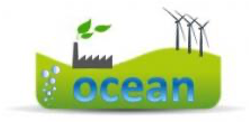
Even with the progress made in decreasing the pollution impact of the industrial sector in Europe, still, great challenges exist in lowering the carbon footprint by progressively substituting the use of fossil fuels. A paradigm shift is needed in the manufacturing of chemical goods and high value-added products, where disruptive technologies will play a key role to achieve the climate change targets for 2050. The European Commission is investing in those technologies with the aim to develop negative emission solutions and lower Europe’s / the industry’s carbon footprint.
The coupling of renewable energies with carbon capture and utilisation is one of the envisaged solutions. The research community in Europe is driving this development through a strong collaboration between academia, industry and policy-makers. Solutions for distributed production of chemicals involve direct solar energy conversion technologies, whereas large-scale production requires a more integrated coupling of renewables with catalytic processes.
In a webinar held 4th June 2021 during EU Green Week, we examined which technologies are currently under development in Europe with examples from six recently funded projects. The webinar also included presentations from the Health and Digital Executive Agency of the European Commission and the SUNERGY initiative.
Below, you can find videos of the presentations, as well as the slides presented.
European strategy for a zero-emission industrial sector
Soren Bowadt, Acting Head of Unit, Health and Digital Executive Agency (HaDEA)
Integrated Reactors for the Production of Green Ethylene
Dr. Pau Farràs
National University of Ireland Galway
Training Network for (Photo)Electrocatalytic Conversion of Valuable Chemicals
Jokotadeola Odutola, Tampere University
Sebastiano Gadolini, Johnson Matthey








